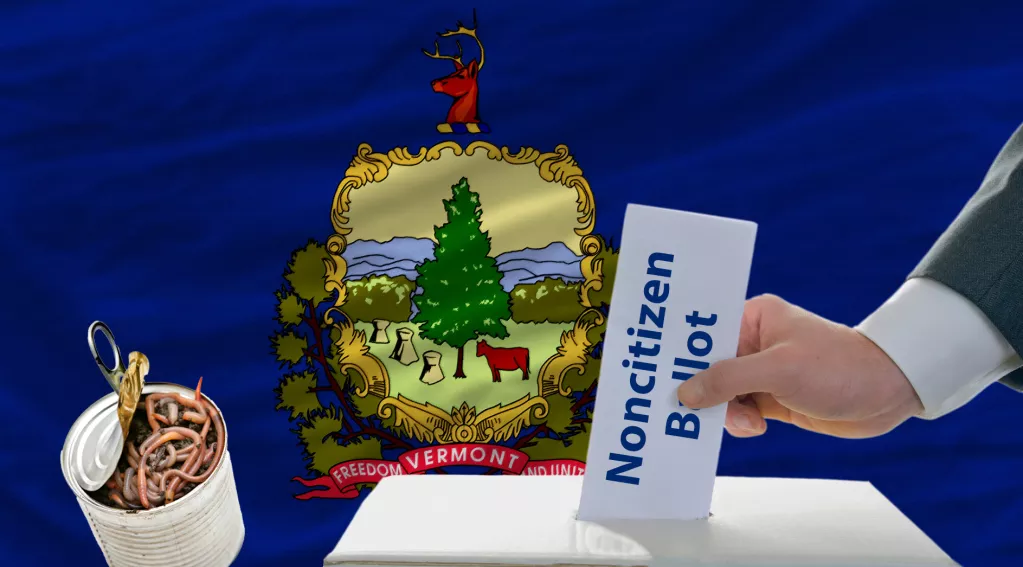Vermont Supreme Court Opens Ballot Box (And a Can of Worms) With Noncitizen Vote Ruling

Bucking referendums and legal decisions from coast to coast, the Vermont Supreme Court ruled last week that noncitizens can vote in local elections. While Montpelier’s City Council president whined that barring noncitizens from the city’s polls was “not fair,” an election integrity group warned, “The real foreign interference in our elections happens when foreign nationals are allowed to vote.”
Though the Vermont Constitution continues to reserve voting privileges in statewide contests to citizens, voters in the capital extended the franchise to noncitizens back in 2018. After years of legislative and judicial wrangling, the Supreme Court agreed.
In a modest concession, the city charter change at least requires noncitizens in Montpelier to be legal residents in order to vote. About 11,000 Vermonters are not U.S. citizens, according to Census data.
Blasting Republican objections, City Council President Jack McCullough harrumphed, “I don’t know how the Republican National Committee knows better what’s good for Vermont than the voters in Vermont, in Montpelier.”
But allowing noncitizens to vote is not a popular proposition with Americans. In November, FAIR reported that liberal-minded Portland, Ore., and the swing state of Ohio nixed proposals similar to Vermont’s.
The push for noncitizen voting also hit legal walls in New York and California, where courts ruled that enabling laws in those states were unconstitutional. New York City’s law, now being litigated at the state’s Supreme Court, has been challenged on grounds it violates both the 15th Amendment of the U.S. Constitution and Section 2 of the Voting Rights Act.
Noting that sponsors of the New York law made explicit statements about it promoting ethnic diversity, J. Christian Adams, president of the Public Interest Legal Foundation (PILF), argues: “The foreign citizen voting law was passed with racial intent, and therefore is unconstitutional.”
The Vermont law made no such claim, but PILF spokeswoman Lauren Bowman said Montpelier’s decision “dilutes the cherished right to vote that many groups fought for over a century to secure. Voting and citizenship should mean something.”
In the nation’s capital, Congress is reviewing a recent move by the Washington, D.C., City Council to enfranchise noncitizens in municipal elections. Rep. James Comer, R-Ky., chairman of the House Oversight and Accountability Committee, has opened an inquiry into the legality of the city’s action.
“It should go without saying: Only Americans should have the power to influence local policy and guide their hard-earned taxpayer dollars to important initiatives,” Comer said. And it’s not just Republicans objecting. The liberal Washington Post branded noncitizen voting “a bad idea.”
“New citizens must swear an oath renouncing all allegiances to foreign powers and promising to support and defend the Constitution against all enemies. There’s nothing in this measure to prevent employees at embassies of governments openly hostile to the United States from casting ballots. Or foreign students who are studying [here],” the Post editorialized.
Unless Montpelier secedes from the union, all the same objections apply in Vermont.

